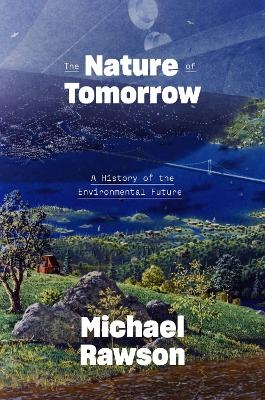
The Nature of Tomorrow
A History of the Environmental Future
Seiten
2022
Yale University Press (Verlag)
978-0-300-25519-5 (ISBN)
Yale University Press (Verlag)
978-0-300-25519-5 (ISBN)
An examination of how Western visions of endless future growth have contributed to the global environmental crisis
“This book does something that is worth doing and that no other scholarly book I know of comes close to doing: tracing the history of imagined environmental futures in the Western world.”—William Meyer, Colgate University
For centuries, the West has produced stories about the future in which humans use advanced science and technology to transform the earth. Michael Rawson uses a wide range of works that include Francis Bacon’s New Atlantis, the science fiction novels of Jules Verne, and even the speculations of think tanks like the RAND Corporation to reveal the environmental paradox at the heart of these narratives: the single-minded expectation of unlimited growth on a finite planet.
Rawson shows how these stories, which have long pervaded Western dreams about the future, have helped to enable an unprecedentedly abundant and technology-driven lifestyle for some while bringing the threat of environmental disaster to all. Adapting to ecological realities, he argues, hinges on the ability to create new visions of tomorrow that decouple growth from the idea of progress.
“This book does something that is worth doing and that no other scholarly book I know of comes close to doing: tracing the history of imagined environmental futures in the Western world.”—William Meyer, Colgate University
For centuries, the West has produced stories about the future in which humans use advanced science and technology to transform the earth. Michael Rawson uses a wide range of works that include Francis Bacon’s New Atlantis, the science fiction novels of Jules Verne, and even the speculations of think tanks like the RAND Corporation to reveal the environmental paradox at the heart of these narratives: the single-minded expectation of unlimited growth on a finite planet.
Rawson shows how these stories, which have long pervaded Western dreams about the future, have helped to enable an unprecedentedly abundant and technology-driven lifestyle for some while bringing the threat of environmental disaster to all. Adapting to ecological realities, he argues, hinges on the ability to create new visions of tomorrow that decouple growth from the idea of progress.
Michael Rawson is professor of history at Brooklyn College and the Graduate Center, City University of New York. He is the author of Eden on the Charles: The Making of Boston, which was the recipient of numerous awards and a finalist for the Pulitzer Prize.
| Erscheinungsdatum | 11.01.2022 |
|---|---|
| Zusatzinfo | 21 b-w illus. |
| Sprache | englisch |
| Maße | 156 x 235 mm |
| Themenwelt | Geschichte ► Allgemeine Geschichte ► Neuzeit (bis 1918) |
| Naturwissenschaften ► Biologie ► Ökologie / Naturschutz | |
| Naturwissenschaften ► Geowissenschaften ► Geologie | |
| Wirtschaft ► Volkswirtschaftslehre | |
| ISBN-10 | 0-300-25519-5 / 0300255195 |
| ISBN-13 | 978-0-300-25519-5 / 9780300255195 |
| Zustand | Neuware |
| Informationen gemäß Produktsicherheitsverordnung (GPSR) | |
| Haben Sie eine Frage zum Produkt? |
Mehr entdecken
aus dem Bereich
aus dem Bereich
Giordano Bruno - ein ketzerisches Leben
Buch | Hardcover (2024)
C.H.Beck (Verlag)
29,90 €
das dramatische 16. Jahrhundert
Buch | Hardcover (2024)
Rowohlt Berlin (Verlag)
34,00 €
die Fahrt der Bounty und die globale Wirtschaft im 18. Jahrhundert
Buch | Hardcover (2024)
Klett-Cotta (Verlag)
25,00 €


